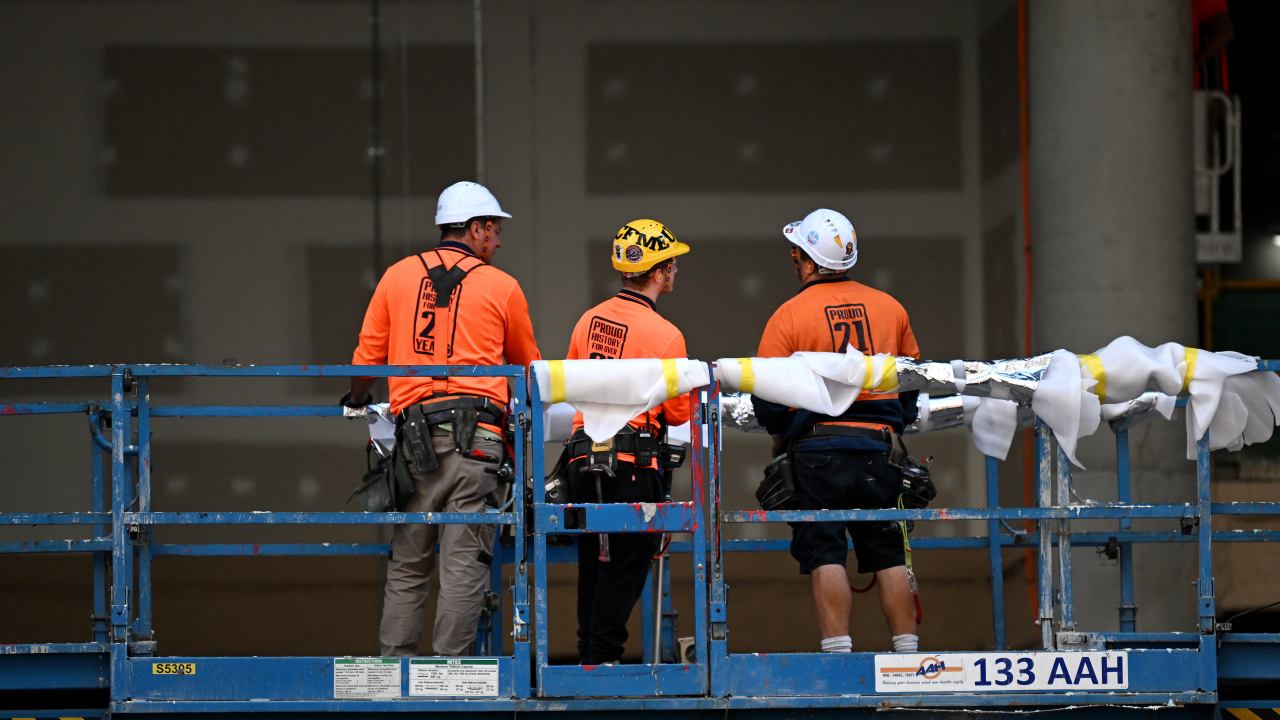Master Builders Australia CEO Denita Wawn is concerned unions are exerting “undue influence” over the Albanese government’s proposed overhaul of skilled migration.
Industry groups have already expressed scepticism over the government’s plans, warning it could further reduce the number of tradies available to work on major housing and infrastructure projects, putting them at risk of failure.
On Tuesday, the government unveiled a draft version of what it refers to as its Core Skills List, including hundreds of occupations which would either be prioritised or deprioritised when visa applicants were assessed.
However, the draft “on list” has faced heavy scrutiny from industry groups, with a number of key professions apparently absent or only part listed despite heavy demand.
While professions such as engineers – across a wide range of industries – nurses and scientists are included on the list, the new draft also includes dog handlers, divers and yoga instructors.
Speaking to Sky News Australia on Tuesday, Ms Wawn described the list as a “Canberra doozy”, while outlining her reaction to the announcement.
“Flummoxed, perplexed, bemused I think were the best words to use,” she explained.
“It did not make any sense to me whatsoever, it was a Canberra doozy special I think.
“For example, carpenter and joiner is on the definite list, but carpenter and joiner, separately, is on the maybe list, so we don’t understand.”
The MBA CEO questioned the process behind the government’s lists, although she conceded that they were still not final amid ongoing consultation with Immigration Minister Andrew Giles and Home Affairs Minister Clare O’Neil.
Ms Wawn said both ministers had assured her industry submissions were “being taken into account” but highlighted even government department’s had been saying “for years” that a lack of workers would make achieving infrastructure targets almost impossible.
Of particular concern is the government’s aim to build 1.2 million new homes in the next five years, with the MBA boss revealing it was currently taking three years to complete unit blocks with a normal deadline of two.
Blowouts on other major projects may also become more likely, she suggested, placing further strain on a construction pipeline the government has already culled due to concerns over affordability.
She added labour shortages were also the main factor in driving up construction costs, suggesting there was a risk of inflation staying “way too high” unless the government acted to address the issue.
As to why tradies were being deprioritised by the government, Ms Wawn said industry groups were concerned unions had lobbied the government to protect jobs for their members to the detriment of the wider economy.
“We’re certainly concerned that there may be undue influence by the unions who don’t want any migration in our sector at all,” she said.
“What has happened in the process? It is quite extraordinary.”
Announcing the government’s planned changes to skilled migration last year, the Home Affairs Minister had suggested the government viewed a lack of tradies as a “failure of our training system”, hinting at the reasoning behind Tuesday’s list omissions.
“Our government feels strongly that for sectors like trades, you should have to prove that there is a skill shortage before you start to recruit overseas,” Ms O’Neil said.
“If we don’t have enough electricians and farmers in our country, I believe that’s a failure of our training system.”
Ms Wawn said “of course” Australia needed to employ more tradies, but warned the country was still facing a massive 90,000 person shortfall which could only be addressed through allowing more workers to apply for visas as skilled migrants.

